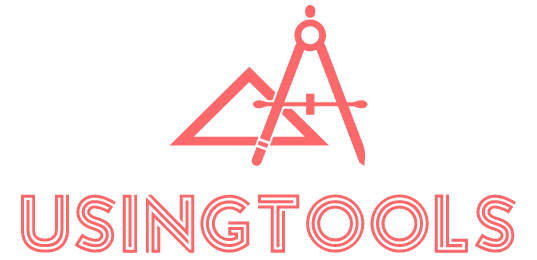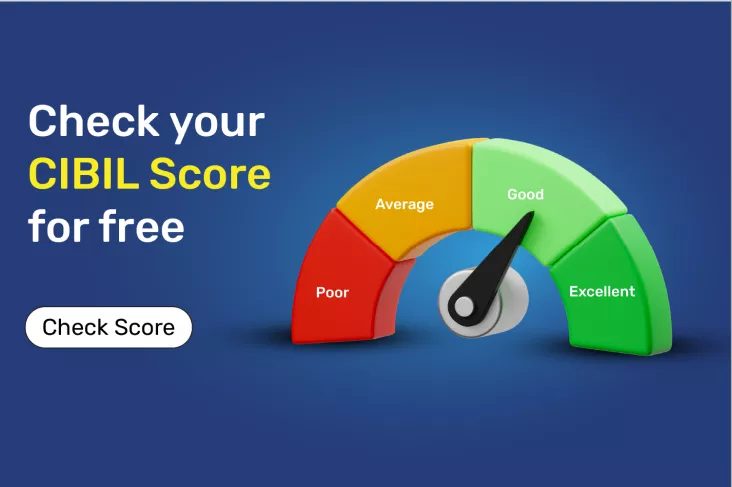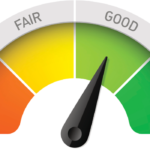What is a CIBIL Score?
A CIBIL score, also known as a credit score, is a three-digit numerical representation of an individual’s creditworthiness. It is a metric used by lenders and financial institutions to assess the risk associated with lending money to a particular borrower. The CIBIL score ranges from 300 to 900, with a higher score indicating a lower credit risk and a higher likelihood of repaying debts on time.
The CIBIL score is calculated by TransUnion CIBIL Limited, India’s leading credit information company, based on an individual’s credit history and behavior. It takes into account various factors, such as payment history, credit utilization, length of credit history, types of credit accounts, and recent credit inquiries.
Having a good CIBIL score is crucial when applying for loans, credit cards, or any other form of credit. Lenders heavily rely on this score to determine an applicant’s creditworthiness and make informed lending decisions. A higher CIBIL score generally translates to better interest rates, higher credit limits, and more favorable terms, as it indicates a lower risk of default.
Table of Contents
Factors Affecting Your CIBIL Score
Your CIBIL score is a three-digit number that reflects your creditworthiness. It is calculated based on several factors, and understanding these factors can help you maintain a good score. Here are the key factors that affect your CIBIL score:
Credit History
Your credit history is one of the most significant factors influencing your CIBIL score. It includes the length of time you have been using credit, the types of credit accounts you have, and your payment history. A longer credit history with a consistent record of on-time payments can positively impact your score.
Credit Utilization
Credit utilization refers to the amount of credit you are using compared to your total available credit limit. It is recommended to keep your credit utilization ratio below 30% to maintain a good CIBIL score. High credit utilization can be seen as a potential risk of overextending your credit and may negatively impact your score.
Payment History
Your payment history is a crucial factor in determining your CIBIL score. Late or missed payments, defaults, and settlements can significantly lower your score. Maintaining a consistent record of on-time payments for all your credit accounts is essential for a good CIBIL score.
Credit Mix
Credit mix refers to the variety of credit accounts you have, such as credit cards, personal loans, home loans, and other types of credit. A diverse mix of credit accounts can positively impact your CIBIL score, as it demonstrates your ability to manage different types of credit responsibly.
Credit Inquiries
Whenever you apply for a new credit account, the lender will make a hard inquiry on your credit report, which can temporarily impact your CIBIL score. Too many hard inquiries in a short period can be seen as a potential risk and may lower your score. However, soft inquiries, such as checking your own credit report or pre-approved offers, do not affect your score.
By understanding and managing these factors, you can take proactive steps to maintain a good CIBIL score, which can improve your chances of getting approved for loans, credit cards, and other financial products at favorable terms.
Why Check Your CIBIL Score?
Checking your CIBIL score regularly is crucial for several reasons. First and foremost, it allows you to monitor your creditworthiness and financial health. A good CIBIL score can significantly impact your ability to secure loans, credit cards, and other financial products at favorable interest rates and terms.
Lenders and financial institutions heavily rely on CIBIL scores to assess the risk associated with lending money to an individual. A high CIBIL score indicates a responsible borrower with a good credit history, making you a more attractive candidate for loan approvals and lower interest rates. Conversely, a low CIBIL score may result in loan rejections, higher interest rates, or less favorable terms.
Moreover, monitoring your CIBIL score can help you identify any potential errors or discrepancies in your credit report. Inaccuracies, such as incorrect personal information, missed payments, or fraudulent activities, can negatively impact your score. By regularly checking your CIBIL report, you can take proactive steps to rectify any issues and maintain a healthy credit profile.
In addition, keeping track of your CIBIL score can assist you in making informed financial decisions. If you plan to apply for a loan, credit card, or any other credit-based product, knowing your score beforehand can help you gauge your chances of approval and negotiate better terms.
Overall, checking your CIBIL score regularly is a responsible financial practice that can potentially save you money, protect your credit reputation, and open doors to better financial opportunities.
How to Check Your CIBIL Score
Checking your CIBIL score is a straightforward process, and you have several options to obtain it. Here’s how you can access your CIBIL score:
- Online through CIBIL Website: Visit the official CIBIL website (www.cibil.com) and follow the steps to request your credit report and score. You’ll need to provide personal details like your name, date of birth, and address for identification purposes. After completing the online application and making the payment, your CIBIL score and report will be available for download or viewing online.
- CIBIL Score Apps: CIBIL has partnered with various banks and financial institutions to offer mobile applications that allow you to check your CIBIL score conveniently. These apps are typically free for customers of the respective banks or may require a nominal fee for non-customers.
- Through Banks and Lending Institutions: Many banks and non-banking financial companies (NBFCs) provide CIBIL scores to their customers as part of their services. You can contact your bank or lender and inquire about obtaining your CIBIL score.
- CIBIL Score Hotline: CIBIL also offers a dedicated toll-free number (1800-200-1501) where you can call and request your credit report and score. You’ll need to provide the necessary personal information for verification, and the report will be sent to your registered address.
- CIBIL Score Branches: CIBIL has physical branches located in various cities across India. You can visit the nearest branch, submit the required documents, and obtain your CIBIL score and report.
Fees may vary depending on the method you choose, but typically range from Rs. 500 to Rs. 1,200 for an annual subscription or a one-time report. It’s important to note that you should only obtain your CIBIL score from authorized sources to ensure the accuracy and legitimacy of the information.
Understanding Your CIBIL Report
Your CIBIL report is a comprehensive document that provides a detailed overview of your credit history and financial behavior. It contains various components that lenders and financial institutions use to assess your creditworthiness. Understanding these components is crucial for interpreting the information accurately and identifying any potential errors.
Components of the CIBIL Report
- Personal Information: This section includes your name, date of birth, address, and other identifying details. It’s essential to verify that this information is correct and up-to-date.
- Credit History: This section lists all your active and closed credit accounts, including credit cards, loans, and other credit facilities. It provides details about the account type, lender, date opened, credit limit, outstanding balance, and payment history.
- Credit Inquiries: Whenever you apply for credit, the lender makes an inquiry on your credit report. This section lists all recent credit inquiries, which can impact your CIBIL score.
- Public Records: This section includes any legal or financial issues that may affect your creditworthiness, such as bankruptcy filings, tax liens, or legal judgments against you.
- CIBIL Score: Your CIBIL score is a three-digit number ranging from 300 to 900, with a higher score indicating a lower credit risk. This score is calculated based on your credit history and other factors.
Interpreting the Information
When reviewing your CIBIL report, it’s essential to carefully analyze each section and ensure the information is accurate and up-to-date. Look for any discrepancies, such as accounts you didn’t open, incorrect payment histories, or unauthorized inquiries. These errors can negatively impact your CIBIL score and should be addressed promptly.
Identifying Errors
If you notice any errors or inaccuracies in your CIBIL report, it’s crucial to take immediate action. Contact the credit bureau and the respective lender or creditor to dispute the error and provide supporting documentation. Resolving these issues promptly can help improve your CIBIL score and maintain a healthy credit profile.
Remember, your CIBIL report is a crucial component of your financial well-being, and understanding its contents can empower you to make informed decisions and maintain a strong credit standing.
CIBIL Score Apps
In today’s digital age, checking and monitoring your CIBIL score has become more convenient than ever with the help of mobile apps. These apps provide a user-friendly interface to access your credit report, track your score, and receive alerts for any changes. Here are some popular CIBIL score apps to consider:
1. CIBIL Mobile App
The official CIBIL mobile app is a comprehensive solution for managing your credit health. It allows you to view your CIBIL score and report, track changes, and receive alerts for any updates. The app also provides educational resources and tips to improve your credit score.
2. CreditMantri
CreditMantri is a popular app that offers free CIBIL score checks and credit report analysis. It provides personalized recommendations to improve your credit score and helps you monitor your credit health. The app also offers credit card and loan recommendations based on your credit profile.
3. BankBazaar
BankBazaar is a leading financial marketplace that offers a range of services, including CIBIL score checks. Their app allows you to access your credit report and score, and provides insights and tips to enhance your credit profile. It also offers a credit score simulator to help you understand how different financial decisions may impact your score.
4. Buddy Score
Buddy Score is a user-friendly app that simplifies the process of checking your CIBIL score. It provides a detailed analysis of your credit report and offers personalized recommendations to improve your score. The app also sends regular updates and alerts to help you stay on top of your credit health.
5. EarlySalary
EarlySalary is a financial platform that offers instant cash loans, credit card bill payments, and CIBIL score checks. Their app allows you to access your credit report and score, and provides insights into factors affecting your credit profile. It also offers personalized loan and credit card recommendations based on your credit score.
Most of these apps offer free CIBIL score checks, while some may charge a nominal fee for additional features or premium services. It’s essential to compare the features, pricing, and user reviews before choosing an app that best suits your needs.
Improving Your CIBIL Score
Improving your CIBIL score is crucial for securing better interest rates on loans, credit cards, and other financial services. Here are some effective tips to boost your CIBIL score:
Manage Debt Effectively
- Pay your credit card bills, loan EMIs, and other debt obligations on time, every time. Late or missed payments can severely impact your score.
- If you’re struggling with debt, consider consolidating your loans or negotiating with lenders for better repayment terms.
- Prioritize paying off high-interest debt first to reduce the overall interest burden.
Maintain a Healthy Credit Utilization Ratio
- Your credit utilization ratio is the amount of credit you’ve used compared to your total available credit limit. Experts recommend keeping this ratio below 30%.
- Pay off outstanding balances on credit cards, or request a higher credit limit to improve your credit utilization ratio.
- Avoid maxing out your credit cards or taking on too much debt, as this can negatively impact your score.
Limit Credit Inquiries
- Each time you apply for a new credit card or loan, it results in a hard inquiry on your credit report, which can temporarily lower your score.
- Limit credit inquiries to only when absolutely necessary, and space them out over time.
Build a Diverse Credit Mix
- Having a mix of different types of credit, such as credit cards, personal loans, and mortgages, can positively impact your score.
- However, avoid opening too many new accounts at once, as this can be seen as a risk by lenders.
Review and Correct Errors
- Regularly check your CIBIL report for any errors or inaccuracies, such as incorrect payment histories or duplicate accounts.
- If you find any errors, promptly dispute them with CIBIL and the respective lender to have them corrected.
Be Patient and Consistent
- Improving your CIBIL score takes time and consistent responsible credit behavior.
- Stick to good financial habits, and you’ll see gradual improvements in your score over time.
Remember, a higher CIBIL score not only improves your chances of getting approved for credit but also helps you secure better interest rates and terms, saving you money in the long run.
Myths and Facts About CIBIL Scores
Myths and misconceptions often surround the concept of CIBIL scores, leading to confusion and misunderstandings. It’s crucial to separate fact from fiction to make informed decisions about your credit health. Let’s debunk some common myths and shed light on the truths about CIBIL scores.
Myth: CIBIL scores are the same as credit scores from other bureaus.
Fact: While CIBIL is one of the leading credit information companies in India, other credit bureaus like Experian and Equifax also operate in the country. Each bureau may use slightly different algorithms and data sources to calculate credit scores, resulting in variations across different bureaus.
Myth: Checking your CIBIL score will negatively impact it.
Fact: Checking your own CIBIL score is considered a soft inquiry, which does not affect your credit score. However, when lenders or creditors check your score during the application process, it is considered a hard inquiry, which can temporarily impact your score.
Myth: Closing old credit cards will improve your CIBIL score.
Fact: Closing old credit cards can actually have a negative impact on your CIBIL score. Older credit accounts with a good payment history contribute positively to your score by demonstrating your creditworthiness over time. It’s generally advisable to keep old credit cards open, even if you don’t use them regularly.
Myth: Only loan and credit card payments affect your CIBIL score.
Fact: Your CIBIL score is influenced by various factors, including utility bill payments, rental payments, and even certain legal judgments or bankruptcies. Maintaining a consistent and timely payment history across all financial obligations is essential for a good CIBIL score.
Myth: Once your CIBIL score is low, it’s impossible to improve it.
Fact: While it may take time and effort, it is entirely possible to improve a low CIBIL score. By adopting responsible financial habits, such as making payments on time, reducing outstanding debt, and maintaining a healthy credit mix, you can gradually rebuild your credit score.
Understanding the truths behind CIBIL scores empowers you to make informed decisions and take proactive steps to maintain a healthy credit profile. Stay vigilant, separate fact from fiction, and prioritize responsible financial practices for a positive impact on your CIBIL score.
CIBIL Score and Your Financial Future
Your CIBIL score is a crucial factor in determining your financial well-being and future opportunities. A good credit score not only opens doors to favorable loan terms and interest rates but also plays a significant role in various aspects of your life.
Long-term Impact
Maintaining a healthy CIBIL score is essential for long-term financial stability. A high score can help you secure better interest rates on mortgages, car loans, and other types of financing, potentially saving you thousands of dollars over the life of the loan. It can also increase your chances of getting approved for credit cards with attractive rewards and benefits.
Moreover, a good credit score can positively impact your ability to rent an apartment, obtain insurance policies, and even secure certain job opportunities. Employers and landlords often check credit scores as an indicator of an individual’s financial responsibility and risk management.
Importance of Good Credit
Good credit is not just about securing loans; it’s about building trust and credibility in the financial ecosystem. Lenders view a high CIBIL score as a sign of responsible financial behavior, making them more likely to offer you favorable terms and conditions.
Additionally, a strong credit score can provide a safety net during unexpected financial emergencies or life events. It can give you access to credit when you need it most, allowing you to navigate through challenging times with greater ease.
Financial Planning
Incorporating your CIBIL score into your financial planning is crucial for achieving long-term goals. By understanding how your credit score impacts various aspects of your finances, you can make informed decisions and develop strategies to maintain or improve your score.
For instance, if you plan to purchase a home or start a business in the near future, working on improving your CIBIL score well in advance can help you secure better financing options and potentially save you a significant amount of money over time.
In summary, your CIBIL score is a powerful tool that can shape your financial future. By actively managing and maintaining a good credit score, you can unlock numerous opportunities, build financial resilience, and pave the way for a secure and prosperous future.
Resolving CIBIL Score Disputes
Even with rigorous processes, errors can occur in CIBIL reports, leading to incorrect or incomplete information reflected in your credit score. If you identify any discrepancies in your report, it’s essential to address them promptly to ensure your credit score accurately represents your creditworthiness.
The process for disputing errors in your CIBIL report involves the following steps:
- Gather Supporting Documents: Collect any relevant documents that support your claim, such as bank statements, loan agreements, or payment receipts. These documents will serve as evidence to validate your dispute.
- File a Dispute: You can file a dispute with CIBIL through their online portal, by mail, or by visiting their office. Provide a detailed explanation of the error(s) you’ve identified and submit copies of the supporting documents.
- Follow Up: CIBIL is required to investigate and resolve disputes within 30 days. During this period, you can follow up with them to inquire about the status of your dispute and provide any additional information they may request.
- Review the Outcome: Once CIBIL has completed their investigation, they will notify you of the outcome. If the dispute is resolved in your favor, they will correct the erroneous information in your report, which should reflect in your updated credit score.
If you are unsatisfied with the resolution or encounter any challenges during the dispute process, you have the right to file a complaint with the Reserve Bank of India (RBI), the governing body overseeing credit information companies like CIBIL.
It’s crucial to remember that as a consumer, you have the right to accurate and up-to-date credit information. By exercising your rights and following the proper channels, you can ensure that your CIBIL score truly reflects your creditworthiness, enabling you to access better financial opportunities.



